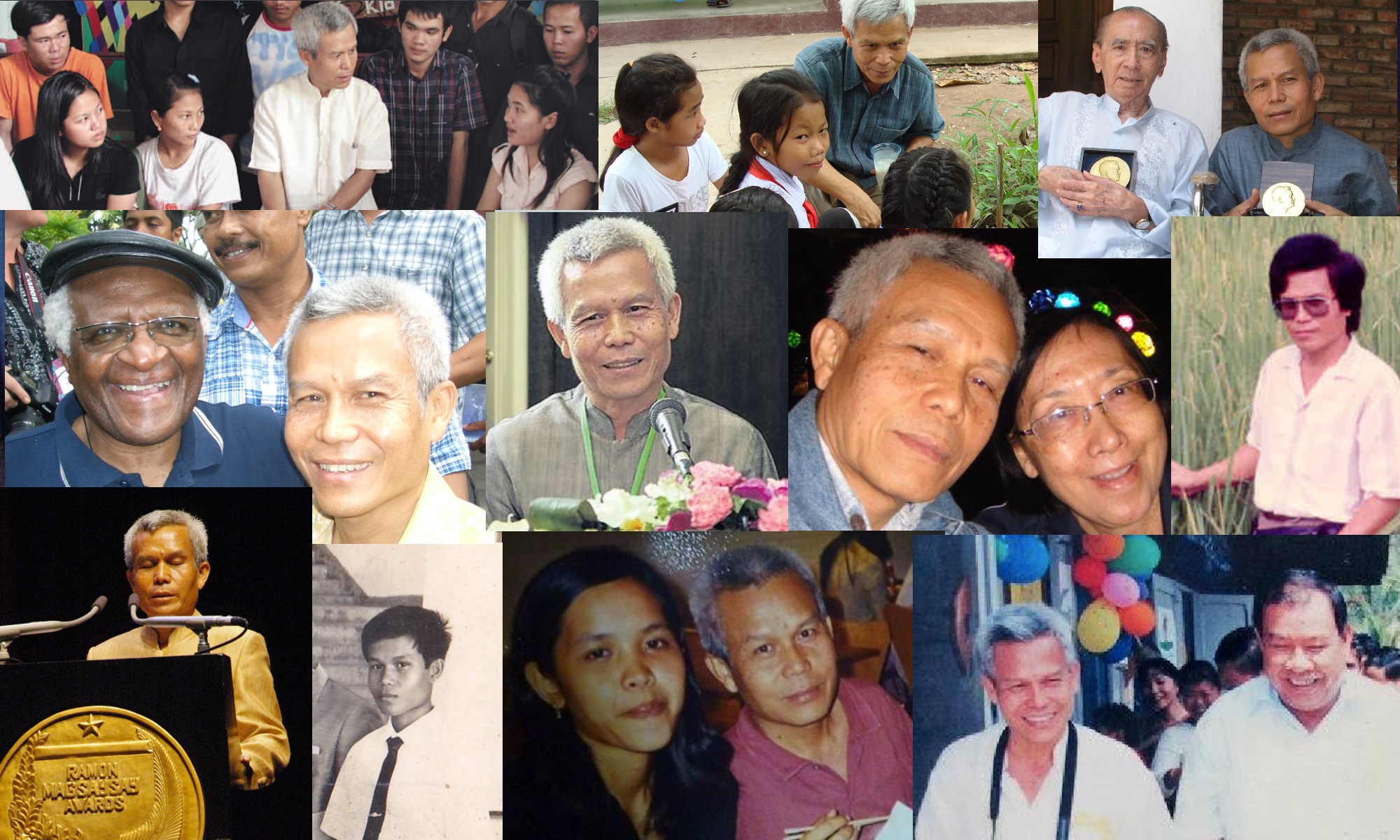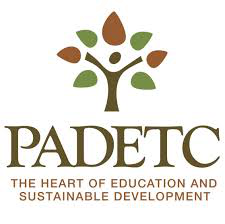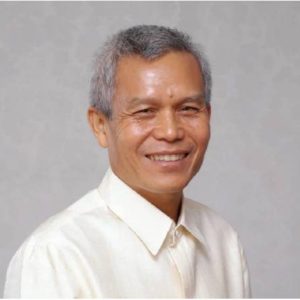Sombath Somphone, Founder of Saoban and PADETC...
Growing Up
The eldest son of a farming family from Ban Don Khio, Khammouane Province, Sombath Somphone knew about poverty, hunger, and insecurity first hand. In the 1960s, when Sombath was eight or nine years old, his family escaped the Indochina war between the revolutionary Pathet Lao and the Government forces and sought temporary refuge in Thailand. Several times a month, Sombath’s family relied on him to paddle a boat alone across the treacherous Mekong to get rice from relatives in his home village in Laos to feed the family, since there was a severe shortage of food for refugee families in Thailand.When the family was able to return to Laos, Sombath had to leave home again to continue his primary and secondary schooling, living with relatives in Thakek, Savannakhet and Vientiane. Through hard work, he managed to obtain an exchange scholarship, and in 1969, Sombath found himself in Wisconsin living with a family and completing his senior year of high school there. Another scholarship from USAID in 1971 took Sombath to the University of Hawaii where he studied Education and Agriculture.
After completing his studies, Sombath returned to Laos in 1979 against the advice of friends, who warned that the political, social and economic turmoil following the end of the Indochina War in 1975 and the formation of the new socialist government in Laos could jeopardize his future career. Sombath was not deterred, however. He was committed to returning to Laos, where he could use his knowledge and skills to improve the lives of poor farmers like his parents and relatives.
Early Years
In 1980, with approval from the government and supported by foreign grants, Sombath started the Rice-Based Integrated Farming System (RIFS) Project, a training program that helped farmers improve food security by using low-cost and eco-friendly technologies. Sombath further trained scores of women and government employees in participatory planning for integrated rural development as a means to tackle rural poverty and to address the needs of not only farmers, but also other groups such as small entrepreneurs, women, and young people.
It was through this experience that Sombath came to believe that to alleviate poverty, development approaches must be multi-dimensional and multi-sectoral. In Laos, where more than 50% of the population are below the age of 20, Sombath realized the country’s progress hinged on engaging and building capacities of Lao youth.

PADETC

In 1996, Founder Sombath Somphone, creator and founder of Participatory Development Training Centre (PADETC - www.padetc.org) and Saoban, consolidated his work in agriculture and rural development to develop an umbrella organizational to promote impactful projects in organic farming, sustainable energy, waste management, and rural handicrafts. Through PADETC, Founder Somphone initiated programs to support the establishment of small and medium enterprises, especially for rural and urban producers. By delivering training in business planning, product development, marketing, and accessing micro-credit, PADETC sought to increase livelihood opportunities for marginalized groups. Saoban was one of the projects created by Founder Somphone under PADETC’s small and medium enterprise umbrella. Saoban’s primary goal was to add value to existing local products, encourage cultural and environmental sustainability, provide increased income for rural communities, and promote fair trade practices.
In his work with PADETC and Saoban, Founder Sombath focused on encouraging the local youth communities. Youth in these communities were encouraged to learn, participate, and gain leadership qualities. Teams of youth volunteers were trained in basic community development concepts, problem identification and analysis, mobilization skills, and leadership attributes, which they used to spearhead activities in schools and communities. Founder Sombath emphasized the importance of our youth to “learn to think, to plan, to act, and to lead.” Sombath hoped that through such participatory and experiential learning, a new generation of leaders will emerge to lead Lao towards a more equitable and sustainable future.
Awards and Recognitions
In recognition for Founder Sombath tireless effort to promote sustainable development in Laos by training and motivating its young people to become inspiring leaders, Sombath Somphone was awarded the prestigious Ramon Magsaysay Award for Community Leadership in 2005. Often referred to as Asia’s Nobel Prize, the Magsaysay Award applauded Sombath’s contribution to Laos’ development through grass root mobilization and for his conviction that a nation’s future ultimately rests with harnessing the potential and creativity of its future leaders, our new beginnings and that is our Youth.

Vision for Saoban
“My vision for Saoban is not only as an outlet for woven products. Eventually I want to see Saoban serving as a brand channel for rural farmers, and especially women, to market a broad range of quality farmers’ products that include mulberry and other organic teas, rattan and bamboo basketware, and handcrafted silver. I want to ensure that products under the Saoban brand will be traded on the principle of fair trade in the marketplace, to ensure that rural families and communities have the opportunity for a dignified and sustainable livelihood.”
----------
